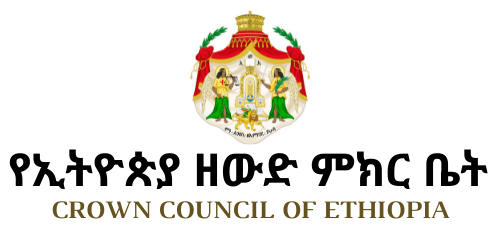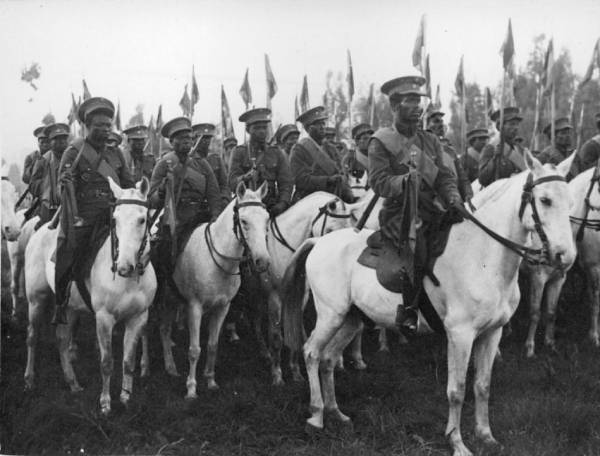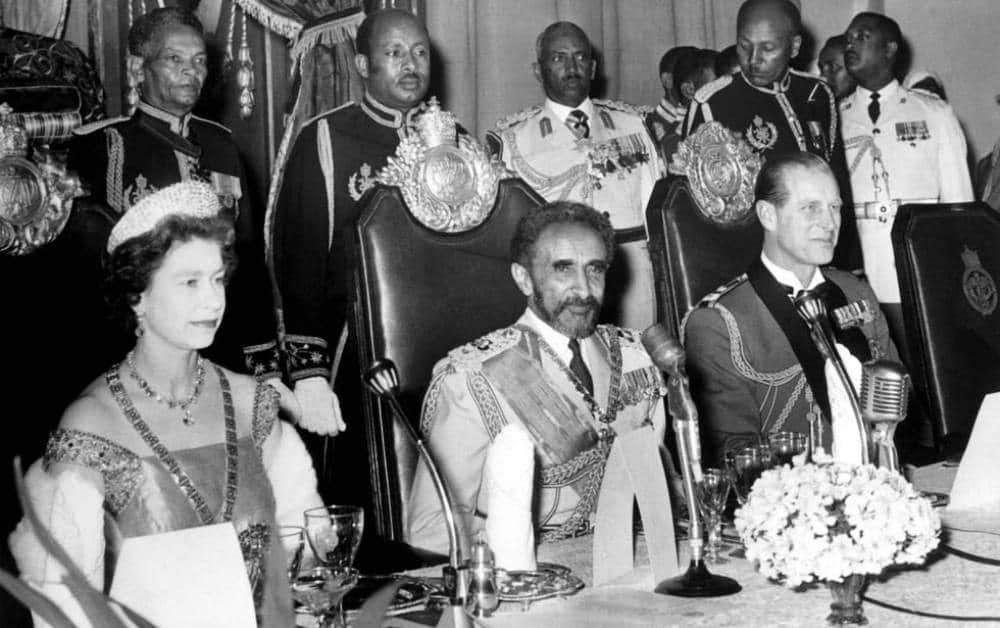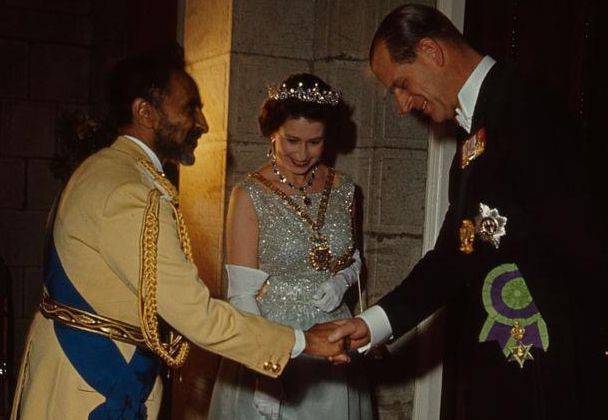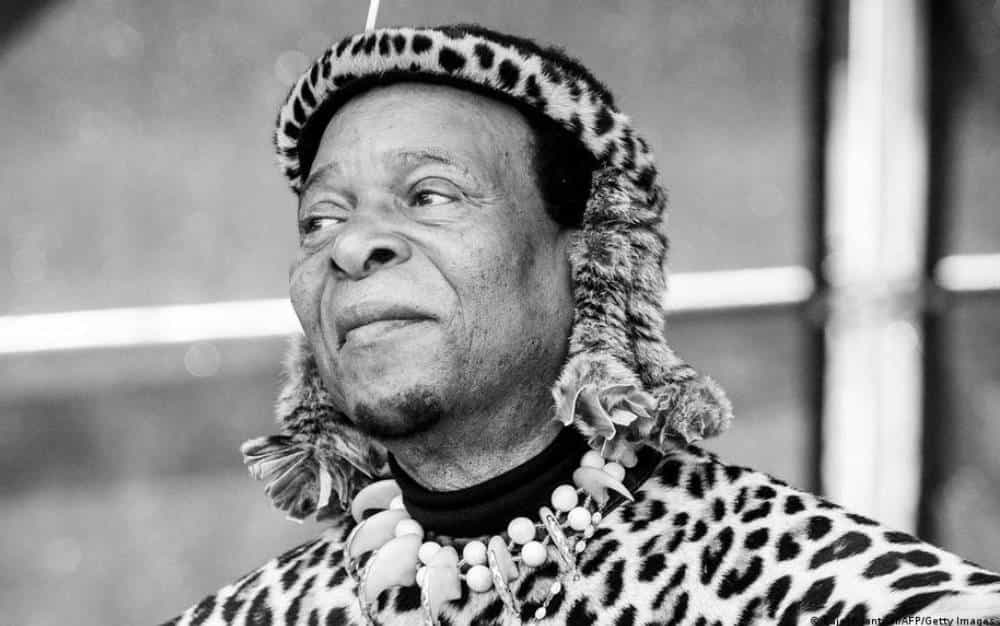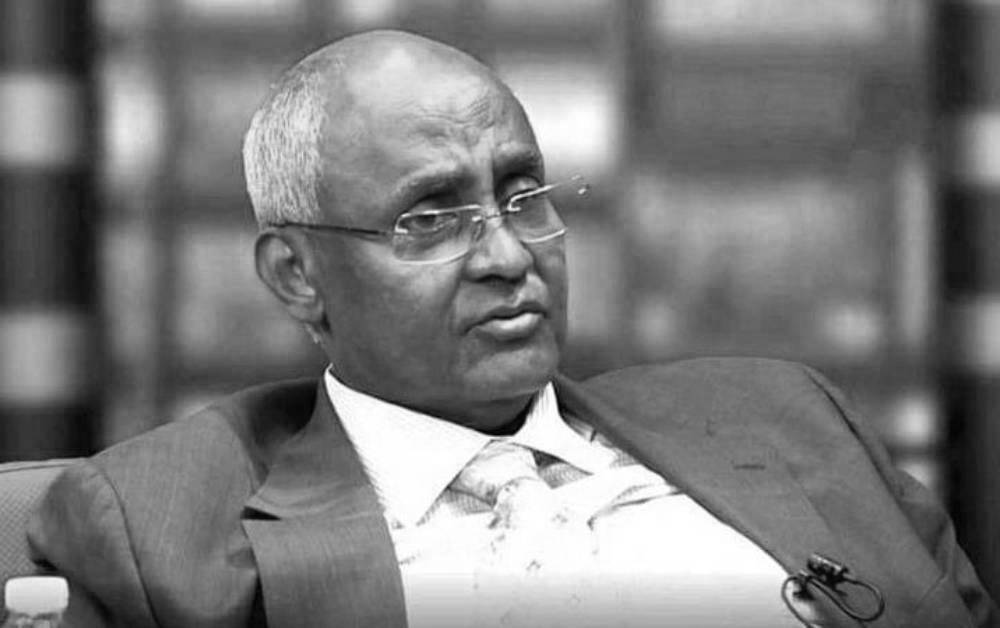A Statement from the Crown Council of Ethiopia by its President, His Imperial Highness Prince Ermias Sahle-Selassie Haile-Selassie
On behalf of the Crown Council, I extend my sincere and deepest condolences to the family of Mr. Hachalu Hundessa, a revered singer in Ethiopia. Mr. Hundessa has graced Ethiopia with his music, demonstrated is love for his Oromo culture and continuously challenged us to evaluate the value of unity. His senseless killing has profoundly affected people in Ethiopia and in the Diaspora.
At a time when the entire world is dealing with turmoil stemming from social dysfunctions in addition to the global health crisis which has shaken economies and developmental efforts for the wellbeing of nations, we now have to mourn the death of another courageous man. Hate crimes have erupted in all societies, benefiting only the forces of destruction and instilling fear as well as instabilities.
It is time for us to reconcile our differences. It is our moment in history for each of us to become a voice of reason to the unreasonable, and work towards fulfilling the hopes of our forefathers and mothers to develop Ethiopia and address the challenges of the youth.
Revisionism is a dangerous approach. Our youth have not benefited from historical education which not only would have highlighted how Ethiopia’s resisted foreign attempts to conquer our society, and how she showed her strength as a unified country to lead Africa and set an example to the world. Ethiopia’s greatness was never based on ethnicity. It has always been about the spirit our family of nations embodies; the culture it embraces and traditions it celebrates.
On June 30, 2020 (23 ሰኔ 2012), the destruction in Cannizaro Park, Wimbledon, in London, of His Imperial Majesty Emperor Haile Selassie I’s iconic statue, and the tearing down of the statue of the Emperor’s father — and a great 19th Century Ethiopian leader in his own right — Ras Makonnen, in Harar, confirms the concerns of our ancestors.
Ethiopians at home and in the Diaspora have witnessed an eruption of racism and ideological hatred against our own heritage with the wanton and deliberate destruction of statues of two historical figures who gave hope, prosperity, and unity to all Ethiopians. Have we forgotten that Oromo pioneers such as Taddasaa Biru, Jaagamaa Keello, Waqejira Serda, Dawit Abdi and Major Qadida Guremeysa all stood on the side of the Emperor and remained politically involved with him throughout their life?
When, on June 29, 2020, radical Oromo separatists utilized the tragic murder of the famous Oromo singer, Mr. Hachalu Hundessa, it affirmed the disruptors’ aim of halting our peaceful progress as well as dismantling the Prime Minister Abiy’s Government efforts. The destruction of these statues seeks only the demise of our diversity and demonstrates blind hatred. In pursuit of a divisive political and ethnocentric agenda, our aggressors are working tirelessly to stifle our interwoven strength and break our long-standing foundation.
The murder of Mr. Hachalu Hundessa, who had the right to speak freely and stand for his rights, has sparked greater violence, with the deaths of more than 100 people in subsequent riots. The radicals who used the excuse of secessionism and extremist ideology to attack the symbols of Ethiopia’s unity did not honor Mr. Hundessa; they defiled him by propagating hatred. In defense of Ethiopia’s sovereignty, we should remember Ras Abebe Aregai, Defense Minster Fitawory HabteGiorgis, General Mulugeta Buli and all the countless Oromo soldiers who stood as one nation in Battles such as the Battle of Adwa as well as the Battle of Machew. Let’s preserve the pride and integrity of our unity. These ethnically-motivated secessionists, supported and financed for many years by foreign governments, have become the enemy of Oromo’s progress, not the champions of Oromo greatness.
Historians know that our great unifiers, Emperor Haile Selassie I and Ras Makonnen along with many other leaders, have been beacons of reconciliation and unity. The radicals who tore down the statues did so knowing that the great motivation of Emperor Haile Selassie was to end ethnic and regional inequality in Ethiopia. Both the Emperor and Ras Makonnen were known for elevating Oromo People as other ethnic people in the territory of Ethiopia, ensuring that they would be a vital and equal part of the greater Ethiopian dream. They brought the Oromo into the heart of the Ethiopian society, and I am living proof, as is the Prime Minister, and so many others. Destroying their legacies and aspirations for Ethiopia will not erase their grandeur.
We must be able to forgive one another for our forefathers’ perceived wrongdoing. We must be able to reconcile our differences, as our shortcomings will be the greatest hurdles for our children. The world is not the same as it was in the time of the Emperor and his Father. Many things are changing and the 21st Century will affect the fundamentals of our existence. We must all overcome this crude belligerence, and this insult to our knowledge and dignity. We are capable of progress with our ability to act as a unified family of proud cultures and peoples.
The death of Mr. Hachalu Hundessa must be addressed transparently through judicial channels, and the murderers brought to justice in open trial. I am pleading to elders, mothers and fathers, and all Ethiopians to extend your reach and to work towards forgiveness. We must march towards hope, prosperity, and dignity.
A country, with its nation at home and abroad, mourns Mr. Hundessa’s untimely death as it has awakened us to the reality of our growing pains. We hope to build forward as one nation recognizing and valuing our culture, history and traditions.
Let us stand for reconciliation and forgiveness. Let us build a foundation of hope, prosperity, and dignity for our children.
God Bless You, and God Bless Ethiopia.
